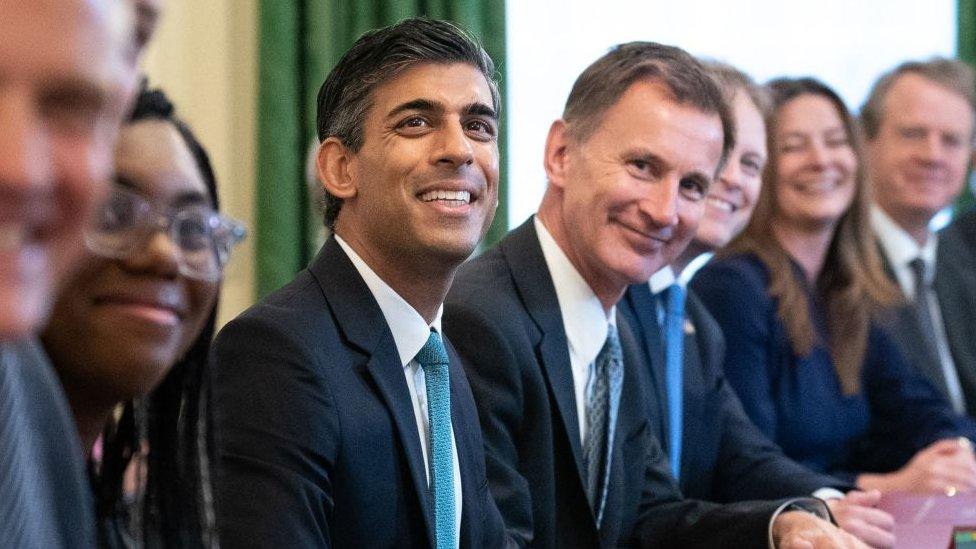What is the ministerial code?
- Published

Prime Minister Rishi Sunak is under pressure to sack Home Secretary Suella Braverman after she accused police of bias in the way they handle protests.
Critics have suggested that she has breached the ministerial code.
What is the code?
The ministerial code sets out the standards that ministers are expected to uphold.
Ministers are MPs and members of the House of Lords appointed by the prime minister to specific jobs in government.
The code covers things like telling the truth in Parliament, keeping cabinet discussions secret and not allowing conflicts to arise between public duties and private interests.
For some, but not all, breaches of the code, ministers are expected to offer their resignation.
When was it published?
While there had been confidential internal codes for many years, it was published as Questions of Procedure for Ministers in 1992 and first released as the ministerial code in 1997.
The current 60-page version, external was issued on 22 December 2022 by Mr Sunak.
What does the ministerial code say?
Ministers are expected to maintain high standards of behaviour and observe the seven principles of public life, external, also known as the Nolan Principles:
Selflessness
Integrity
Objectivity
Accountability
Openness
Honesty
Leadership
There are more specific rules for ministers, including:
Collective responsibility - once a decision has been taken, ministers have to support it or resign
Ministers have to be accountable to Parliament and not knowingly mislead it
They should be as open as possible with Parliament and the public
They must avoid conflicts between their public duties and private interests, including when accepting gifts or hospitality
Ministers must not use government resources for party matters
They must uphold the political impartiality of the civil service and not ask civil servants to do anything that breaches their own code
How is it enforced?
There is an Independent Adviser on Ministers' Interests who can:
Conduct investigations if asked to by the prime minister
Give confidential advice to ministers
Advise the prime minister on adherence to the code
Sir Laurie Magnus was appointed to the role in December 2022.
The prime minister has the final decision on whether a minister has breached the code and what sanctions are required, if any.
If the prime minister does not want a minister who has breached the code to resign, alternatives include requiring a public apology or removing the ministerial salary for a period.
When has it been breached?
There have been a number of breaches and alleged breaches of the code in recent years including:
Mrs Braverman resigned as home secretary in October 2022 for sending official documents from her personal email, but was reappointed six days later
Nadhim Zahawi was sacked as Conservative Party chairman after an inquiry into his tax affairs, which the prime minister said made clear there had been a "serious breach of the ministerial code"
Dominic Raab resigned as deputy prime minister after a bullying inquiry found he acted in an "intimidating" and "aggressive" way towards officials
There were, of course, also departures following breaches of the ministerial code under Labour governments. Peter Mandelson left the government, external in both 1998 and 2001.

Read more about Verify: Explaining the 'how' - the launch of BBC Verify
